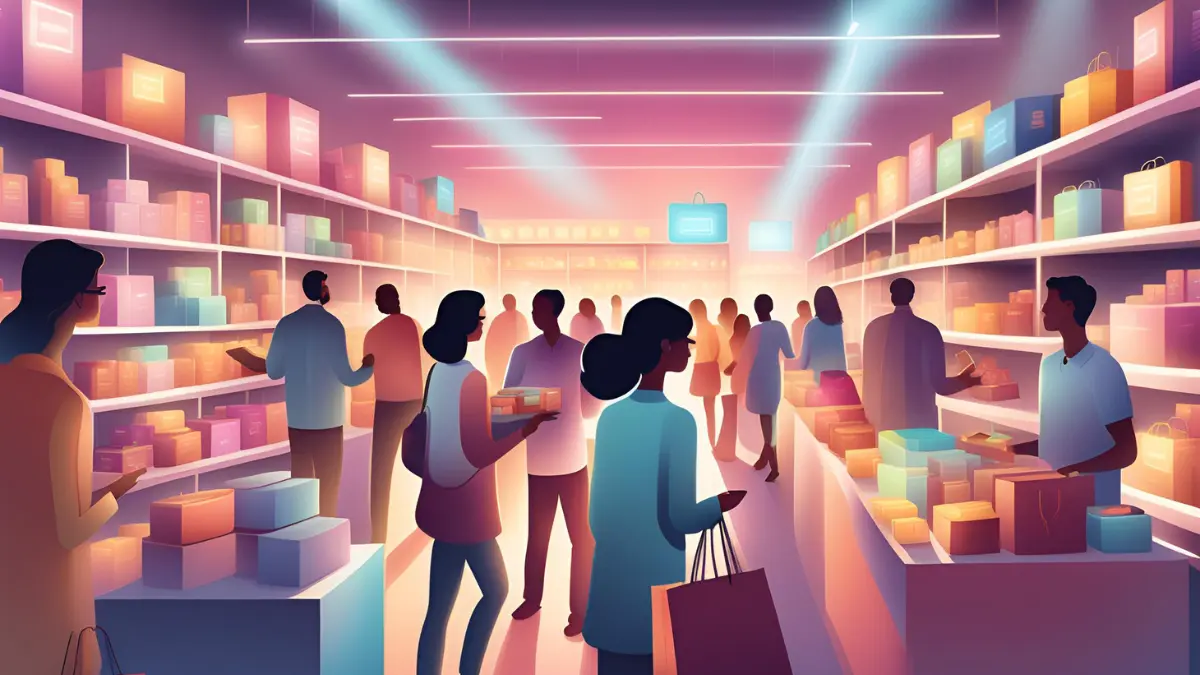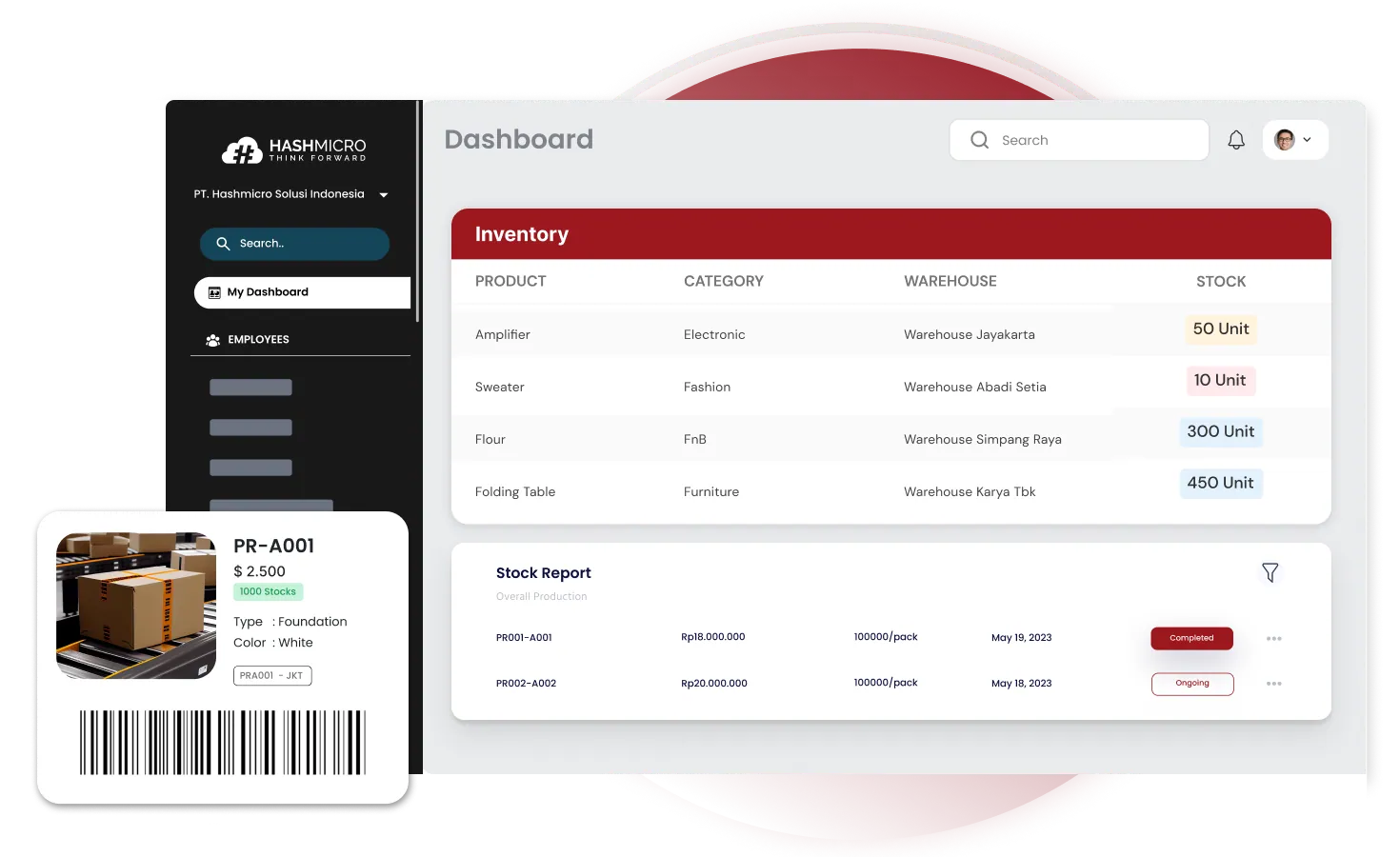Business in the Philippines involves navigating different challenges, from managing inventory to dealing with tax regulations like BIR accreditation. One important decision every entrepreneur faces is choosing between a wholesale and a retail business model. Each model affects your operations, pricing, customer engagement, and growth potential differently.
A study conducted by the Philippine Institute for Development Studies (PIDS) shows that businesses that understand the right model, whether wholesale or retail, can increase their operational efficiency by 30% and reduce tax compliance-related errors by 15%.
In this article, we will discuss the differences between wholesale and retail, at kung paano ang bawat modelo ay maaaring makaapekto sa iyong mga pagpapatakbo at mga pagpapasya sa negosyo sa merkado ng Pilipinas.
Key Takeaways
|
Table of Contents
Wholesale vs Retail
Wholesale and retail each play a vital role in the supply chain, but their business models operate on different levels. Wholesale focuses on volume and efficiency, while retail emphasises customer satisfaction and personalisation. This distinction affects how each model generates revenue and builds relationships.
When comparing wholesaling and retailing, consider how much control you want over the customer experience. Retail provides direct access to buyers, allowing for feedback and fostering loyalty. On the other hand, wholesale is more about logistics, distribution, and maintaining B2B partnerships.
Choosing between retail and wholesale also depends on your operational strengths. If you’re skilled in digital marketing and product display, retail might suit you best. But if you prefer managing supply chains and bulk orders, wholesale could offer better long-term stability.
What is Wholesale?
Wholesale is the business of selling goods in large quantities to other businesses rather than directly to consumers. A B2B wholesale model typically involves purchasing products in bulk from manufacturers and distributing them to retailers at a lower price. This allows wholesalers to benefit from high-volume transactions while enabling retailers to focus on individual customer sales.
In wholesale trade, businesses prioritise operational efficiency, inventory management, and strong relationships with retail buyers. Sales are usually larger per transaction but involve fewer customers, helping to streamline supply chain processes. Wholesalers often play a critical role in connecting manufacturers with wider markets through established retail networks.
Unlike retail, wholesale focuses less on marketing to individual consumers and more on logistics, bulk pricing, and maintaining consistent product availability. This makes wholesale trade a strategic choice for businesses aiming for stable, long-term revenue through large orders and repeat business partnerships.
What is Retail?
Retail is the process of selling goods or services directly to the final consumer for personal use. Retailers purchase products from wholesalers or manufacturers and sell them in smaller quantities at a marked-up price. The main focus in retail is creating an appealing customer experience, offering convenience, and building brand loyalty.
Retail businesses operate through various channels, including physical stores, online marketplaces, and mobile applications. In the wholesaling and retailing landscape, retailers are positioned at the end of the supply chain, directly interacting with individual buyers. Success in retail often depends on effective marketing strategies, strong customer service, and an understanding of consumer behaviour.
Unlike wholesalers, retailers handle frequent, smaller transactions and must manage a diverse range of product selections to meet the varying needs of their customers. Managing inventory, setting competitive prices, and offering personalised services are critical aspects of operating in the wholesale and retail environment as a retailer.
Why Wholesaling Might Suit You

Wholesaling might be the right choice if you prefer focusing on high-volume sales rather than managing individual customer interactions. With wholesale trade, you primarily deal with other businesses, which often leads to fewer but larger transactions. This model can help you streamline operations and build strong, long-term partnerships with retail clients.
Business owners who excel in supply chain management, logistics, and bulk inventory control are often well-suited for the wholesale model. Wholesaling reduces the need for extensive marketing campaigns aimed at individual consumers, allowing you to concentrate resources on operational efficiency and distribution networks.
If you aim to achieve consistent revenue through large orders and value building a stable business-to-business (B2B) relationship, B2B wholesale can offer a more predictable and scalable growth path. For entrepreneurs seeking lower customer service demands and higher operational control, wholesaling presents a strategic and sustainable business opportunity.
Why Retail Might Suit You
Retail is ideal if you enjoy connecting directly with end customers and shaping their shopping experiences. In the wholesaling and retailing industry, retail provides the opportunity to build a strong brand identity. You have greater control over product presentation, pricing, and customer service.
Retailers benefit from immediate feedback, allowing faster adaptation to changing consumer demands. With the right marketing strategy, retail businesses can create strong loyalty and repeat purchases. Personal engagement and creative promotion are key success factors in the retail space.
Choosing retail means being actively involved in marketing, customer relationship management, and trend spotting. It is suited for entrepreneurs who are dynamic, responsive, and passionate about brand building. Retailing can offer higher margins compared to wholesale, but requires more effort in customer-facing operations.
Wholesale Benefits
Wholesale offers the advantage of selling in large volumes, resulting in faster inventory turnover and a steady cash flow. Working in B2B wholesale allows you to focus on fewer clients with bigger orders. This efficiency often translates into reduced marketing and customer service costs.
Wholesalers typically benefit from economies of scale by purchasing goods in bulk at lower costs. Lower operational expenses combined with consistently large transactions create a strong foundation for profitability. Wholesale trade businesses can also enjoy more predictable revenue streams over time.
Another key advantage of wholesale is the opportunity to build long-term business relationships. Establishing partnerships with retailers ensures recurring sales and strengthens brand reputation. In the wholesale and retail ecosystem, wholesalers often operate with less market volatility than retailers.
Wholesale Challenges
While wholesaling offers many benefits, it also comes with its own set of challenges that every business must be prepared to handle. Understanding these obstacles is crucial to building a resilient and profitable B2B wholesale operation. Here are some of the main challenges you may face:
1. High capital requirements
Wholesaling often demands significant upfront investment for purchasing inventory in bulk. You also need to invest in warehousing, logistics, and transportation systems. Without sufficient capital, maintaining smooth operations can become difficult.
2. Dependence on large clients
Wholesalers usually work with a few key retail buyers, making them highly dependent on these clients. Losing one major buyer can significantly impact revenue and business stability. Building diversified client portfolios is essential to minimize this risk.
3. Inventory management risks
Managing large quantities of stock increases the risk of overstocking, spoilage, or obsolescence. Poor inventory management can tie up cash flow and add storage costs. Efficient supply chain practices are critical to avoid financial losses.
Retail Benefits
Retailing offers several advantages that make it an appealing option for many entrepreneurs. One of the primary benefits is the ability to set higher profit margins. Retailers sell products directly to consumers, which allows for flexibility in pricing. This flexibility enables businesses to add value through customer service, store ambiance, and personalized experiences, ultimately driving up profitability.
Another significant benefit of retail is the opportunity to create stronger brand connections. Retailers engage directly with their customers, offering a platform to build brand loyalty and emotional ties. This interaction allows businesses to cultivate a loyal customer base, which is essential for long-term success in the competitive wholesale and retail landscape.
Retail businesses also benefit from the ability to adapt quickly to market changes. By being in direct contact with consumers, retailers can respond to customer feedback and trends faster than wholesalers. This adaptability allows retail businesses to stay ahead of competitors, offering the right products at the right time and maintaining consumer satisfaction.
Retail Challenges
While retailing offers many advantages, it also comes with its own set of challenges that every business owner should be aware of. The retail sector is dynamic and competitive, and managing a retail business requires careful planning and adaptability. Here are some of the main challenges you may encounter in retail:
1. Inventory management issues
Retailers need to ensure they have the right stock levels to meet customer demand without overstocking. Overstocking leads to higher storage costs and potential product obsolescence, while understocking can result in lost sales. Balancing inventory is crucial for maintaining a stable cash flow.
2. Supply chain disruptions
Retailers rely heavily on a consistent supply chain to keep products in stock. Any disruption, such as delays in shipments or issues with suppliers, can negatively impact sales. Efficient supply chain management and having backup options are essential to mitigate this risk.
3. Customer expectations
Modern consumers have high expectations when it comes to service, quality, and convenience. Meeting these expectations can be a challenge, especially in a fast-paced retail environment. Offering personalized experiences, timely delivery, and excellent customer service is crucial.
Which One is Better? Wholesale or Retail?
Choosing between wholesale and retail is not an easy decision, as both have their benefits and challenges. The best choice depends on your product type, target market, and business goals. Wholesaling is suitable for those who want to focus on large sales volumes with lower margins, while retailing is more ideal for those who want to build direct relationships with consumers and set higher prices.
If you’re focusing on B2B wholesale and want to achieve stable revenue with bulk purchases, wholesaling may be a better choice. However, if you are interested in more personalized customer relationships and full control over product pricing and marketing, retailing may be a more suitable option. In this context, a retail business offers greater opportunities to establish a strong brand and foster long-term customer loyalty.
Overall, there is no better choice between wholesale and retail in general. Both business models can complement each other, and many companies choose to operate in both models to maximize their revenue. The best choice will depend on your available resources, product type, and how you want to interact with your market.
Choosing the right business model is crucial for success. Whether wholesale or retail, understanding your business needs will guide your decision. Click the banner below to discover the best solution for your business!
Choosing the Right Software for Wholesale and Retail
Choosing the right software is crucial for managing your wholesale or retail business effectively. It ensures smooth operations, better inventory control, and streamlined sales processes. The right solution should cater to the specific needs of your business model, whether wholesale, retail, or both.
For wholesale businesses, the software needs to support bulk ordering and supplier management. Key features include real-time inventory updates, order automation, and comprehensive reporting. These tools help businesses manage large quantities of stock efficiently and maintain accurate records.
Retail businesses require software that focuses on Point of Sale (POS) transactions, customer management, and inventory control. Features like real-time updates, easy customer tracking, and sales reporting are essential to providing excellent customer experiences and ensuring operational efficiency.
HashMicro offers solutions for both wholesale and retail businesses. The Wholesale Management System helps track inventory and manage orders, while the Retail ERP integrates sales, inventory, and customer data in one platform. Both systems provide user-friendly interfaces and customizable features to enhance accuracy, reduce costs, and improve customer satisfaction.
Optimize Your Wholesale and Retail Business with HashMicro’s POS Retail Software

Managing wholesale and retail operations requires precision, flexibility, and real-time control. HashMicro POS Retail provides an integrated platform to handle bulk wholesale transactions and high-volume retail sales efficiently. It helps businesses maintain accurate inventory levels, streamline order processes, and manage customer relationships from a single system.
By combining wholesale capabilities and retail flexibility, HashMicro POS Retail enables businesses to operate more efficiently, reduce operational costs, and deliver better customer experiences. It is the ideal solution for companies that need to manage both wholesale and retail activities seamlessly under one system.
Its comprehensive features are designed to accommodate the unique needs of each model:
- Web-based Interface: This feature allows wholesale distributors and retailers to access the system anytime, anywhere through any internet-connected device. For wholesalers handling multiple warehouses or retailers managing several stores, the flexibility reduces operational downtime and hardware dependency.
- Loyalty & Reward: For retail businesses, building customer loyalty is crucial. This feature enables you to create targeted promotions based on purchasing behavior, driving repeat sales and increasing customer retention, which is vital for sustaining retail growth.
- Multi Price List: In wholesale and retail, pricing can vary across different outlets or customer groups. This feature allows you to manage and update multiple pricing structures efficiently from a centralized platform, perfect for wholesalers dealing with bulk buyers and retailers offering promotional discounts.
- Sales History: Tracking historical sales data helps both wholesalers and retailers make informed decisions. By analyzing past transactions, businesses can predict demand, plan inventory, and set strategic sales targets more accurately.
- Void / Return Sale: Handling returns is inevitable in wholesale and retail. HashMicro POS Retail ensures that voided transactions and returns are processed smoothly without disrupting your back-end systems, maintaining accurate stock levels and financial records.
- Easy Product Tracking: Managing a large inventory is a challenge in wholesale and retail. This feature allows businesses to easily locate and update product information, ensuring that inventory levels stay accurate and products are always ready for sale or shipment.
Conclusion
Choosing between wholesale and retail depends on your business goals, resources, and how you want to engage your customers. Wholesale focuses on selling in bulk to other businesses, ensuring stable, large orders. Retail, meanwhile, allows direct interaction with individual customers and faster revenue cycles.
Both wholesaling and retailing offer unique benefits and challenges that impact your operations and growth strategies. Understanding the wholesale and retail meanings, along with the difference between wholesale and retail, will help you make informed decisions. The key is aligning your business model with market demands and your long-term vision.
To support your operations, using the right system is essential. HashMicro’s POS Retail solution empowers both wholesale and retail businesses by streamlining inventory, sales, and customer management. Schedule a free demo today and tuklasin kung paano HashMicro maaaring taasan ang iyong tagumpay sa negosyo!
Question About Wholesale vs Retail
-
What is an example of wholesale?
A classic example of wholesale is a distributor who purchases products in large quantities from a manufacturer or brand, such as a sports brand distributor in France, and then resells those products to specialized sports stores or sports clubs at competitive prices. Another well-known example is Costco, which buys goods in bulk from suppliers and sells them in large quantities to retailers or directly to consumers through a membership model. Other examples include Sysco (foodservice distribution) and Alibaba (B2B marketplace connecting global buyers and suppliers)
-
What is the difference between retail and wholesale banking?
Retail banking serves individual customers and small businesses, focusing on everyday banking needs like savings accounts, personal loans, and credit cards. Wholesale banking, on the other hand, caters to large organizations, corporations, governments, and financial institutions, handling large-scale and complex financial transactions. Wholesale banking offers specialized services such as corporate loans, treasury management, and investment banking, while retail banking emphasizes customer service for individuals and standardized products
-
What is the difference between a wholesaler and a reseller?
A wholesaler buys products in large quantities directly from manufacturers and sells them to other businesses, such as retailers or resellers, not to the end consumer. A reseller (often a retailer) purchases goods from wholesalers and then sells them to the general public or end users, typically in smaller quantities and at a higher price. The main differences are in their customer base (businesses vs. consumers), purchase volume, and their position in the supply chain
-
What is the difference between retail and wholesale?
– Customer Base: Wholesale sells goods in bulk to other businesses (B2B), such as retailers or resellers, whereas retail sells products directly to end consumers (B2C).
– Quantity & Pricing: Wholesalers deal in large quantities at lower prices, while retailers sell in smaller quantities at higher prices.
– Focus: Wholesalers focus on distribution and logistics, with less emphasis on customer experience. Retailers prioritize customer service, marketing, and the shopping experience.
– Role in Supply Chain: Wholesalers act as intermediaries between manufacturers and retailers; retailers are the final link, selling to the end use








































































